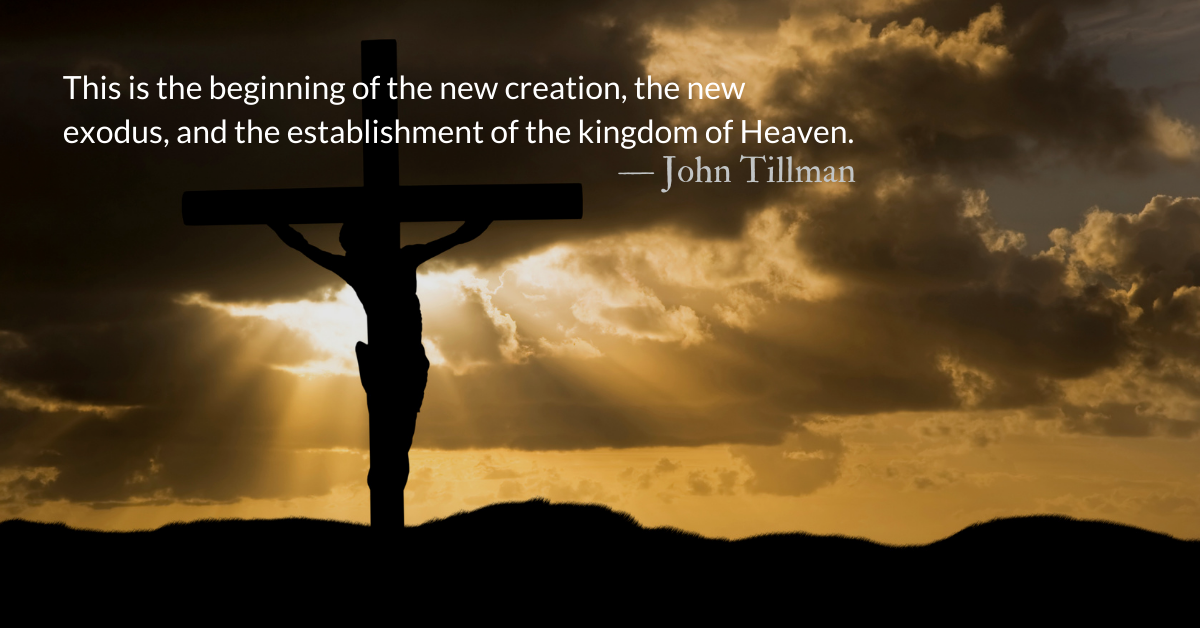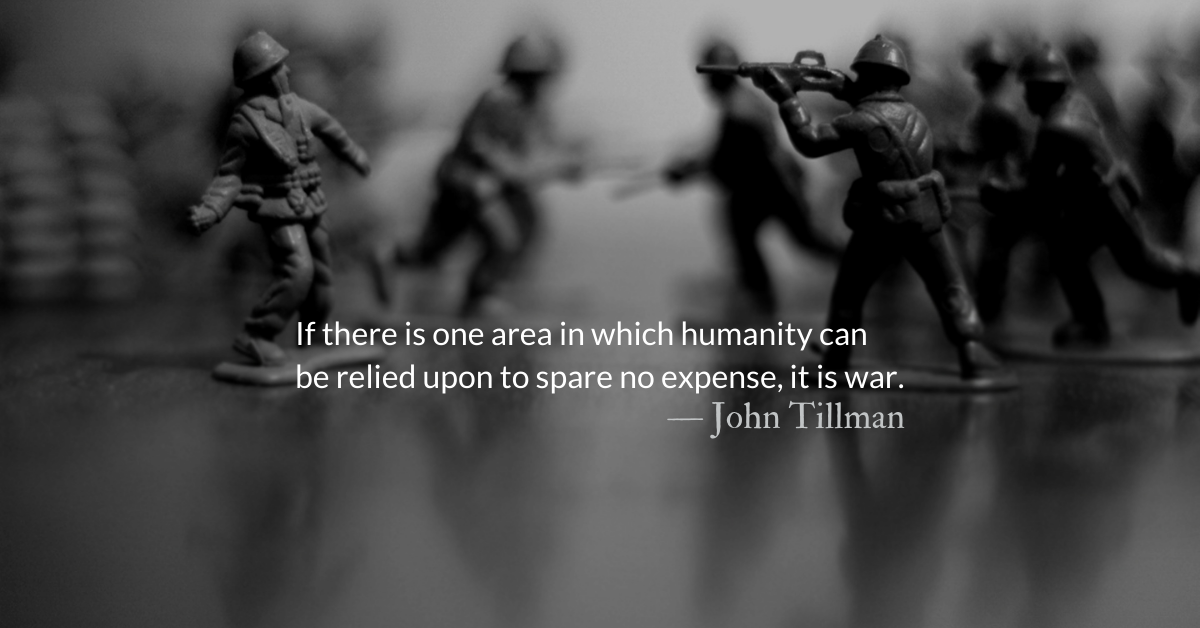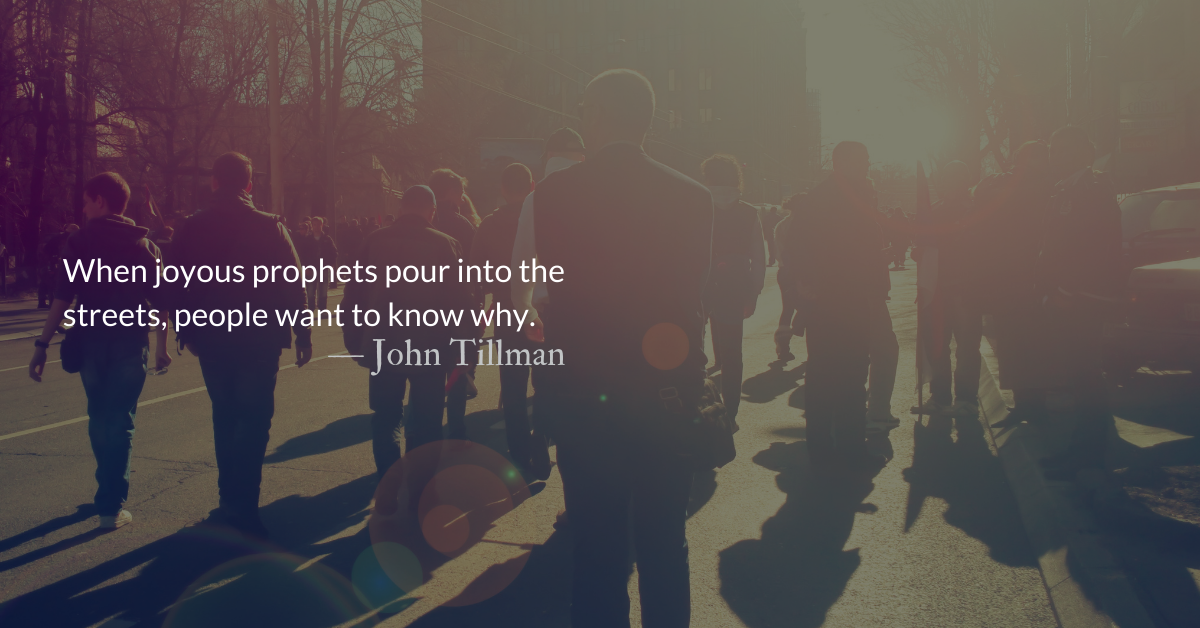Scripture Focus: Joel 3.9-11
9 Proclaim this among the nations:
Prepare for war!
Rouse the warriors!
Let all the fighting men draw near and attack.
10 Beat your plowshares into swords
and your pruning hooks into spears.
Let the weakling say,
“I am strong!”
11 Come quickly, all you nations from every side,
and assemble there.
From John: By the time this posts on Tuesday, the world will be dealing with the outcome of ever-increasing attacks on Israel, Ukraine, and whatever escalation comes following this weekend’s events. We return to this post from 2020, recognizing that there are wars that must be fought, and we beg God’s mercy on those defending innocent lives. However, we also recognize that those who leap to war and idolize or sacralize war are acting as citizens of the kingdom of death, not the kingdom of God.
Reflection: Unprecedented Peace
By John Tillman
“Beat your plowshares into swords.” is part of a challenge God issues to the nations and it sounds like the taunts of brash pro-wrestlers.
“Gather all your best warriors. You are all weak, compared to me! But for the moment, fool yourself and say ‘I’m strong.” Grab that plowshare. Make a sword out of it. Grab a metal chair and take your best shot. Weaponize everything. You want a fight? Come and get it..” — based on Joel 3.9-13
Sinful nations need few excuses to turn resources of cultivation into resources of destruction. Rather than plant and grow, they prefer to slash and burn and kill. With this sarcastic taunt, God turns them over to their sin.
If there is one area in which humanity can be relied upon to spare no expense, it is war. Many nations, not just those of crackpot dictators, allow their populations to suffer or even starve in order to spend more on war. Even peaceful countries which go to war, lose any shyness about deficits. Going all in on war is the default setting.
This is also true in wars of rhetoric. We see this in our culture’s online dialogue. In desperation, every scrap of information is weaponized and our debt to truth is defaulted. We keep beating on conspiracies until we mistake them for a sword of truth.
One group which suffers when leaders dive anxiously into war is soldiers. Most veterans see their service as an honor and spend the majority of their time securing the peace. But honorable soldiers often die in service of dishonorable leadership.
“Beat your plowshares into swords” is not a call for God’s people to answer. This is why Isaiah and Micah both reverse Joel’s warlike taunt, making it a promise of peace, highlighting God’s incredible mercy and redemption. (Joel 3.10; Isaiah 2.4; Micah 4.3) God will put an end to war. This reversal is only possible because of Jesus. Without Jesus, we are at war and enemies with God. (Job 19.11; Psalm 68.21; Romans 5.10; Philippians 3.18; Colossians 1.21) Christ not only makes peace with us but makes us agents of peace. (Philippians 4.2-7) This unprecedented peace beyond all understanding, helps us intercede in conflict to make peace
War is so entrenched in our culture. Violence so widely lauded as a solution. Christians can shine in darkness by clinging to our identity as people of peace.
May we beat our swords into plowshares.
May we make tools of destruction into implements of cultivation.
Divine Hours Prayer: The Cry of the Church
Even so come, Lord Jesus!
– From The Divine Hours: Prayers for Summertime by Phyllis Tickle.
Today’s Readings
Joel 3 (Listen 3:20)
Matthew 20 (Listen 4:22)
Read more about Unprecedented Spirit
There is always a time when the Lord will relent.
But relenting only comes after repenting. And the time for repentance is now.
Read more about Already But Not Yet
Weapons of war are turned into agricultural tools. It is a transition from death-dealing to life-giving activities.









